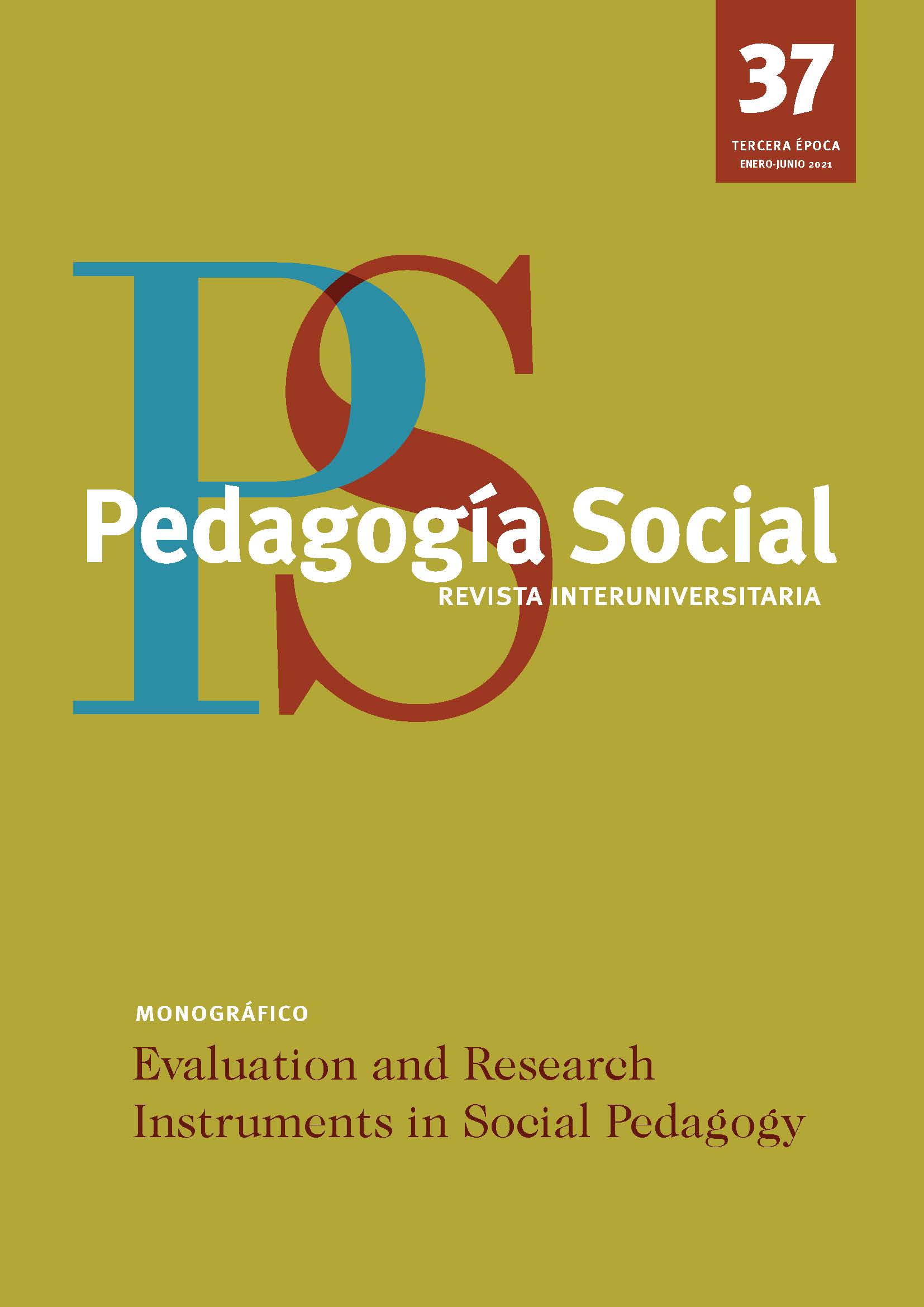Fundamentación, descripción y análisis del cuestionario situacional de estrategias y metas de resolución de conflictos escolares
DOI:
https://doi.org/10.7179/PSRI_2021.37.05Palabras clave:
Evaluación; resolución de conflictos; estrategias; metas; escuela; alumnado; profesorado.Resumen
El objetivo del artículo es ofrecer un instrumento para evaluar las estrategias de resolución utilizadas y las metas planteadas por el alumnado y el profesorado en los conflictos escolares. Se optó por un cuestionario situacional porque conecta con las experiencias reales de ambos colectivos y facilita el diseño de programas para la resolución positiva de los conflictos en función de las necesidades detectadas. El instrumento (en sendas versiones para alumnado y profesorado) está conformado por seis tipos de conflictos escolares presentados en situaciones hipotéticas, adaptadas en cada versión. En cada situación se solicita la frecuencia de ocho estrategias (negociación, mediación, persuasión, adaptación con comprensión, afirmación de poder, violencia, evasión y aceptación con sumisión) y el grado de acuerdo con siete metas (relacional, cambio con internalización, cumplimiento de normas, valor académico, compensación, evitación y punición) de resolución de conflictos. En cuanto a los análisis estadísticos, antes de realizar el análisis factorial exploratorio (AFE), se exploraron los datos obtenidos de 1143 estudiantes de la ESO y 166 de sus profesores y profesoras en sus respectivas versiones del cuestionario, confirmando su adecuación. Los análisis factoriales identificaron en ambas versiones tres factores de estrategias (integrador, dominador y evitador del malestar) y dos de metas (a largo y a corto plazo). Además, se realizaron diversos análisis de fiabilidad y validez de los datos, obteniéndose valores adecuados. Por tanto, se aporta una herramienta rigurosa, realista y sensible para evaluar la gestión del conflicto, tanto del alumnado como del profesorado, proporcionando claves para diseñar una intervención ajustada a las necesidades de ambos colectivos y de la escuela.
Descargas
Descargas
Publicado
Cómo citar
Número
Sección
Licencia
Derechos de autor 2021 Pedagogía Social. Revista Interuniversitaria

Esta obra está bajo una licencia internacional Creative Commons Atribución-NoComercial-CompartirIgual 4.0.
Derechos de reproducción y archivo
La versión publicada de los artículos podrá ser autoarchivada por sus autores en repositorios institucionales y temáticos de acceso abierto. No obstante la reutilización total o parcial de los mismos en nuevos trabajos o publicaciones deberá ser autorizada por Pedagogía Social. Revista Interuniversitaria.
Los trabajos publicados deberán ser citados incluyendo el título de la Revista, Pedagogía Social. Revista Interuniversitaria, nº, páginas y año de publicación.
Responsabilidades éticas
Pedagogía Social. Revista Interuniversitaria no acepta material publicado anteriormente en otros documentos. Los/as autores/as son responsables de obtener los permisos oportunos para reproducir parcialmente material de otras publicaciones y citar correctamente su procedencia. Estos permisos deben solicitarse tanto al autor/a como a la editorial que ha publicado dicho material.
Es obligación de Pedagogía Social. Revista Interuniversitaria detectar y denunciar prácticas fraudulentas.
En la lista de autores/as firmantes deben figurar únicamente aquellas personas que han contribuido intelectualmente al desarrollo del trabajo.
La revista espera que los/as autores/as declaren cualquier asociación comercial que pueda suponer un conflicto de intereses en conexión con el artículo remitido.
Los autores deben mencionar en el manuscrito, preferentemente en el apartado del método, que los procedimientos utilizados en los muestreos y controles han sido realizados tras la obtención de consentimiento informado.
La revista no utilizará ninguno de los trabajos recibidos con otro fin que no sea el de los objetivos descritos en estas normas.
Aviso de derechos de autor/a
© Pedagogía Social. Revista Interuniversitaria. Los originales publicados en las ediciones impresa y electrónica de esta Revista son propiedad del Pedagogía Social. Revista Interuniversitaria, siendo necesario citar la procedencia en cualquier reproducción parcial o total.
Salvo indicación contraria, todos los contenidos de la edición electrónica se distribuyen bajo una licencia de uso y distribución “Creative Commons Reconocimiento-No Comercial 3.0 España” (CC-by-nc). Puede consultar desde aquí la versión informativa y el texto legal de la licencia. Esta circunstancia ha de hacerse constar expresamente de esta forma cuando sea necesario.






